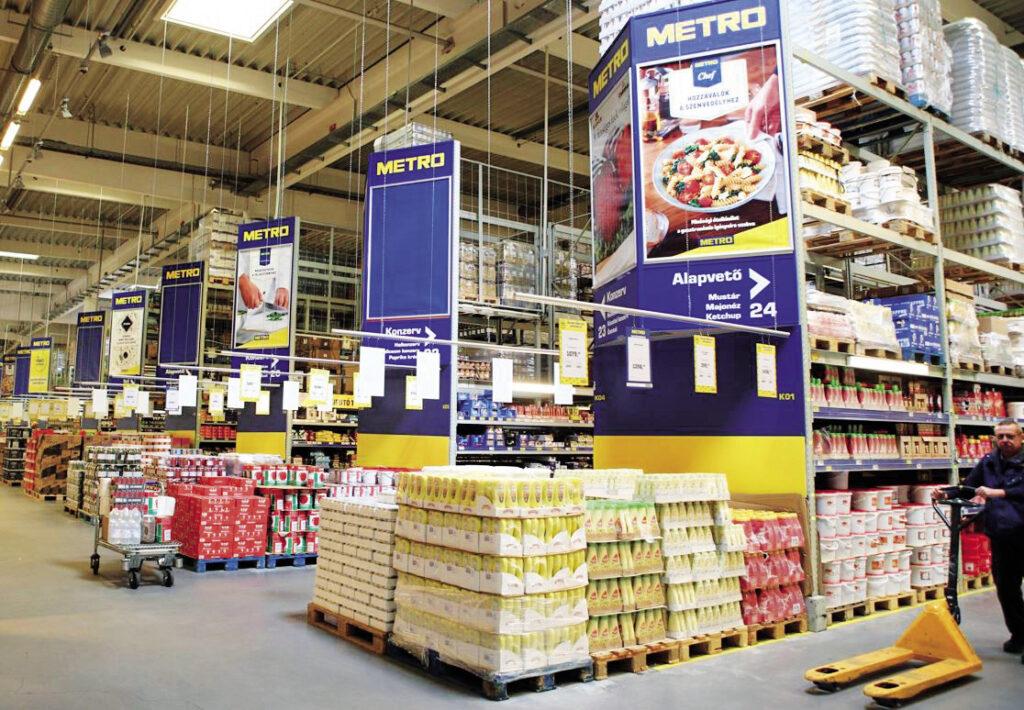METRO has changed its strategy: monthly promotions instead of weekends
The German retailer Metro, which was a significant player in Hungary’s retail sector in the 1990s and 2000s, has faced challenges in recent years. Despite experiencing the 2008 financial crisis, changing shopping habits, competition from discount chains, and the impact of the Covid-19 pandemic, Metro has struggled to increase its revenue.

The German Metro was previously a significant player in Hungary’s retail and wholesale trade sector in the 1990s and 2000s. Following the model of the parent company, which arrived in Hungary in 1993, Metro focused primarily on supplying retailers and restaurants. You could only make purchases in the store with a Metro card for entrepreneurs. However, they changed their policy a few years ago and now individuals can get a Metro Gourmet card through their website.
“For end users, Metro can be attractive primarily because of the wide range and larger volume of purchases. If, say, someone wants to have a barbecue with a larger group and buy four types of meat, two types of fish, and five types of wine, they can choose from at Metro.”
Ákos Taferner, Metro’s marketing manager, told Telex.
Of course, access to the Metro card has become available to many people. Although previously only large quantities of certain products could be purchased, the store chain offered similar promotions and a significant portion of their revenue came from purchases by individuals.
The main target audience of the Metro store chain is, of course, businesses. More than half of the store’s turnover comes from the hospitality industry (HoReCa), about ten percent from retailers, and only one third from household purchases.
Metro wants to become attractive to both business groups. To this end, more than a quarter of them already offer a special discount for their products in case of larger purchases. In addition, a circular letter containing the most important 50 products is sent to restaurants every week.
The goal of the store chain is to become a “warehouse” for restaurateurs and retailers, where customers prefer them not only because of the sales, but also because of the stable, hardly changing prices. This is facilitated by the introduction of monthly offers, which allow small businesses to more easily plan with prices and not have to constantly check them.
Metro’s long-term plans include the launch of an online platform that would be like a marketplace and where other companies could sell their products. This has already been launched in some countries, and it is expected to be introduced in Hungary next year.
Telex now talked to Ákos Taferner about the changes.
Related news
Penny’s ‘Markthalle’ discount concept in Germany
Penny’s marketplace concept in Germany is an evolutionary step towards…
Read more >Online and discount grocery to experience fastest growth in next 5 years
Online and discount grocery channels are set to experience the…
Read more >Hungarian Retailers Unite for Charity During the Holiday Season
Seven major Hungarian food retail chains—Aldi, Auchan, Lidl, Penny, SPAR,…
Read more >Related news
The Joy of Giving! – SPAR stores collect non-perishable food for people in need
The Hungarian Maltese Charity Service and SPAR Hungary have launched…
Read more >Technological advancements and business travel
The latest research from International Workplace Group (IWG), the leading…
Read more >This is what we expect from artificial intelligence: we will be more efficient and have more fun
The Ipsos 2024 AI Monitor report provides a comprehensive picture…
Read more >








